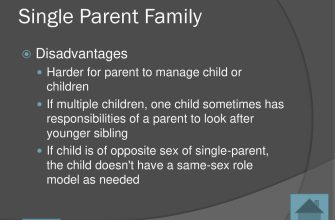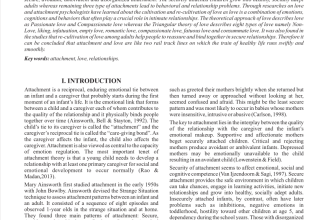Eco-Friendly Living: A Family Affair
Living an eco-friendly lifestyle is not just a personal choice, but a responsibility that every individual should take seriously. In fact, it can be a wonderful family affair that promotes sustainability, teaches valuable life lessons, and strengthens the bond between family members. By making small changes in our daily routines and adopting environmentally friendly practices, we can create a positive impact on the environment and inspire future generations to do the same.
One of the key aspects of eco-friendly living is reducing our carbon footprint. This can be achieved by conserving energy, minimizing water usage, and adopting sustainable transportation methods. Encouraging your family to turn off lights when not in use, take shorter showers, and walk or bike instead of driving for short distances are simple yet effective ways to contribute to a greener future.
Another important aspect of eco-friendly living is responsibly managing waste. Teaching your children the importance of recycling, composting, and reducing waste can instill lifelong habits that prioritize the well-being of our planet. By involving the whole family in sorting recyclables, reusing items, and minimizing packaging, we not only reduce landfill waste but also educate our children about the importance of conscious consumption.
Main Points:
– The importance of eco-friendly living for families.
– How eco-friendly habits can be implemented into everyday family life.
– The benefits of eco-friendly living for the environment and future generations.
– Tips and strategies for adopting eco-friendly practices as a family.
– How teaching children about eco-friendly living can create a lasting impact.
Benefits of adopting a sustainable lifestyle.
By adopting a sustainable lifestyle, individuals and families can make a significant difference in minimizing environmental impact, improving quality of life, and promoting a more sustainable future for all.
Simple swaps for a greener home.
Living an eco-friendly lifestyle doesn’t have to be difficult or expensive. In fact, making simple swaps in your daily routine can have a big impact on the environment. Here are a few easy changes you can make to create a greener home:
Switch to reusable shopping bags

Plastic bags are a prominent source of pollution, often ending up in landfills or polluting our oceans. By utilizing reusable shopping bags, you can assist in reducing waste and protecting the environment. Keep a few bags in your car or by the front door, so you always have them handy when you go shopping.
Replace disposable with reusable
Instead of using disposable items like paper plates, plastic cutlery, and single-use water bottles, opt for reusable alternatives. Invest in a set of durable, dishwasher-safe dishes, utensils, and water bottles that you can use over and over again. This small change can significantly reduce the amount of waste you produce.
These are just a few simple swaps you can make to create a greener home. By being mindful of your daily choices and making small changes, you can contribute to a healthier planet for generations to come.
Involving kids in eco-friendly activities.
:max_bytes(150000):strip_icc()/Term-Definitions_Triple-bottom-line-a68cfb959e0a4910bc13d172d6127644.jpg)
Teaching children about the importance of eco-friendly living from a young age is crucial for shaping their values and actions towards a sustainable future. Here are some activities you can engage in with your kids to make them more aware and involved in eco-friendly practices:
- Backyard gardening: Start a small vegetable garden with your kids and teach them how to grow their own food. This not only helps them understand the importance of reducing food waste but also encourages healthy eating habits.
- Recycling projects: Get creative with recycled materials by engaging in DIY projects. Encourage your kids to make artwork or useful items from old newspapers, cardboard, or plastic bottles. This will help them understand the importance of reusing and reducing waste.
- Nature walks: Take your kids on nature walks and teach them about the beauty and importance of the natural world. Use this opportunity to discuss topics like biodiversity, conservation, and the effects of pollution.
- Energy-saving challenges: Turn energy-saving habits into a fun challenge. Encourage your kids to turn off lights when not in use, unplug electronics, and save water. Reward them for their efforts and foster a sense of responsibility towards the environment.
- Community clean-ups: Organize or participate in community clean-up events with your kids. This will not only help keep the environment clean but also instill a sense of pride and ownership in your children for their surroundings.
- Remember, involving kids in eco-friendly activities not only benefits the environment but also teaches them valuable life lessons. By making sustainable practices a part of their daily lives, we can ensure a better future for generations to come.
LSI Keywords: Sustainable living, Green homes, Eco activities.
Living a sustainable life is not only good for the environment, but it also sets a positive example for future generations. By making small changes in our daily lives, we can contribute to a greener and healthier planet. One way to start is by adopting green homes and eco activities as a family.
Sustainable Living
Sustainable living is all about making choices that have a positive impact on the planet. It involves reducing waste, conserving energy, and using resources efficiently. By adopting sustainable practices at home, we can significantly reduce our carbon footprint and help preserve the environment for future generations.
Green Homes and Eco Activities

Green homes are houses designed and constructed with sustainability in mind. They incorporate energy-efficient features like solar panels, insulation, and smart technologies. By living in a green home, we can decrease our energy consumption and decrease our dependence on non-renewable resources.
In addition to living in a green home, participating in eco activities as a family can further support sustainable living. This can include activities such as recycling, composting, gardening, and using eco-friendly household products. These activities not only reduce waste but also promote a healthier and more environmentally conscious lifestyle.





